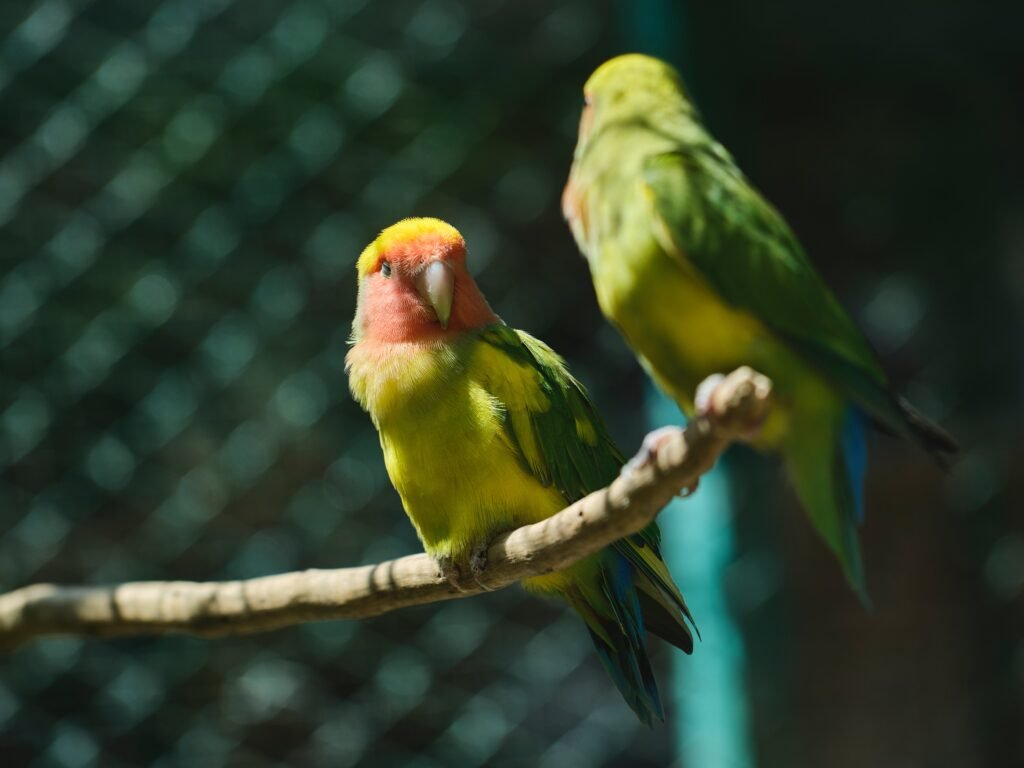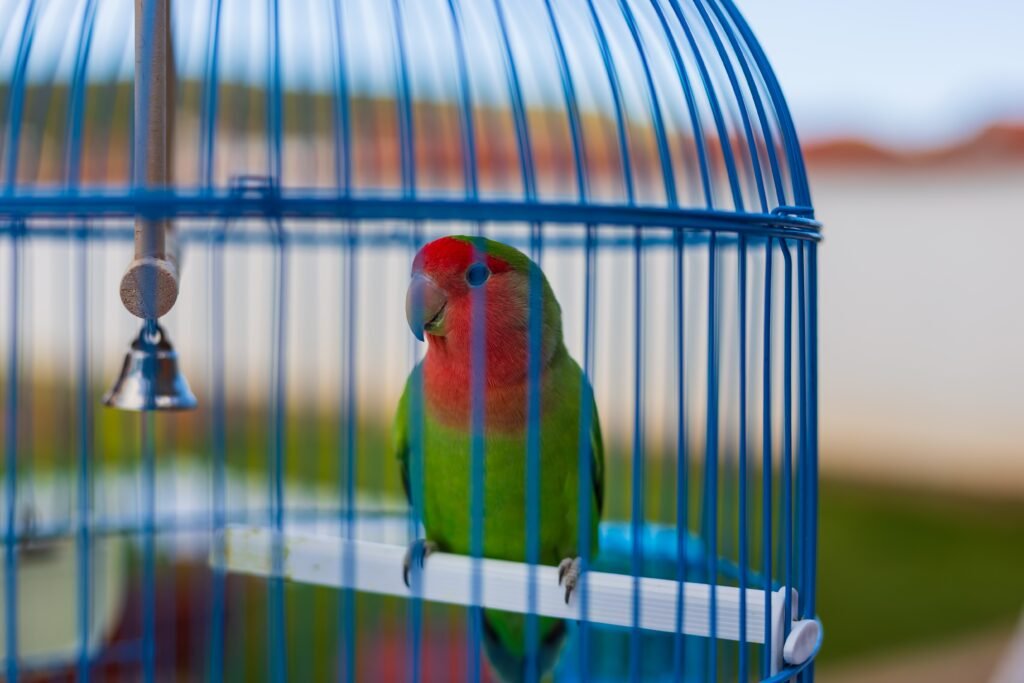Lovebirds are delightful and charming pets that bring joy and companionship to many bird enthusiasts. As responsible bird owners, it is crucial to ensure that our feathered friends receive a balanced and nutritious diet. While seeds and pellets are the mainstay of a lovebird’s diet, incorporating vegetables can provide essential vitamins, minerals, and fiber. In this article, we will explore a variety of vegetables that are safe and beneficial for lovebirds to consume.
Benefits of Vegetables for Lovebirds
Including vegetables in a lovebird’s diet offers numerous advantages. Some key benefits of incorporating vegetables into their meals are:
- Nutritional Value: Vegetables are rich in essential nutrients, including vitamins, minerals, and antioxidants. These nutrients contribute to the overall health and well-being of lovebirds. For example, leafy greens such as spinach, kale, and romaine lettuce are packed with vitamins A, C, and K, as well as iron and calcium. These nutrients are essential for maintaining healthy bodily functions and promoting optimal health.
- Fiber Content: Vegetables are an excellent source of dietary fiber, promoting digestive health and preventing common issues like constipation. Including vegetables like broccoli, cauliflower, and sweet potatoes in a lovebird’s diet can help regulate their digestive system and prevent digestive problems. The fiber in these vegetables aids in smooth bowel movements and overall gut health.
- Variety and Enrichment: Introducing vegetables to lovebirds’ diet adds variety and stimulation, preventing boredom and promoting mental and physical health. Lovebirds, like humans, can get bored with the same food every day. By offering a variety of vegetables, such as leafy greens, cruciferous vegetables, and root vegetables, you provide them with different flavors and textures that keep them engaged and satisfied.
- Weight Control: Vegetables are generally low in calories and can help regulate the weight of lovebirds, preventing obesity and related health problems. Incorporating vegetables into their diet can provide a healthier alternative to high-calorie treats. For example, bell peppers are low in calories but rich in vitamin C, which supports the immune system and promotes healthy feather growth. By offering lovebirds vegetables as a snack or part of their meals, you can help them maintain a healthy weight and prevent weight-related issues.
- Wellness and Disease Prevention: Some vegetables contain compounds that boost the immune system, protecting lovebirds from illnesses and promoting longevity. Carrots, for instance, are rich in beta-carotene, which supports eye health. Including carrots and other vegetables rich in antioxidants in their diet can help strengthen their immune system and reduce the risk of diseases.
Now that we understand the benefits, let’s delve into the vegetables that lovebirds can enjoy:
1. Leafy Greens
Leafy greens are a fantastic addition to a lovebird’s diet. They are packed with essential vitamins and minerals that contribute to optimal health. Some safe and nutritious leafy greens for lovebirds include:
- Spinach: High in iron and calcium, spinach provides essential minerals for lovebirds. It can be served raw or lightly steamed. Spinach also contains vitamins A, C, and K, which support various bodily functions, including vision, immune system health, and blood clotting.
- Kale: Rich in antioxidants, kale supports the immune system and promotes healthy eyesight. Offer kale in moderation to prevent calcium absorption issues. Kale is also an excellent source of fiber, which aids in digestion and helps regulate bowel movements.
- Romaine Lettuce: A hydrating option, romaine lettuce is a great source of vitamins A and C. It should be thoroughly washed before serving. Romaine lettuce is also low in calories and high in water content, making it a refreshing and nutritious choice for lovebirds.
2. Cruciferous Vegetables
Cruciferous vegetables offer a range of health benefits for lovebirds. They are known for their disease-fighting properties and are excellent sources of vitamins and minerals. Some safe cruciferous vegetables for lovebirds are:
- Broccoli: Packed with vitamins A, C, and K, as well as fiber, broccoli aids in digestion and supports a healthy immune system. Serve it in small, bite-sized pieces. Broccoli also contains sulforaphane, a compound that has been shown to have anti-cancer properties.
- Cauliflower: Rich in vitamins and minerals, cauliflower provides a nutritious addition to a lovebird’s diet. Offer it raw or lightly steamed. Cauliflower is particularly high in vitamin C, which acts as an antioxidant and helps protect the body against free radicals.
3. Root Vegetables
Root vegetables are nutrient-dense options that lovebirds can enjoy. They are a great source of energy and provide various vitamins and minerals. Some safe root vegetables for lovebirds include:
- Carrots: A favorite among birds, carrots are rich in beta-carotene, which supports eye health. They are best served grated or shredded. Carrots also contain fiber, potassium, and vitamin K, which contribute to overall health and well-being.
- Sweet Potatoes: Packed with vitamins A and C, as well as fiber, sweet potatoes offer a nutritious treat for lovebirds. Cook them thoroughly before serving. Sweet potatoes are also a good source of antioxidants, which help protect the body against oxidative stress and promote a healthy immune system.
4. Peppers
Peppers are vibrant and flavorful vegetables that lovebirds can safely consume. They are packed with vitamins and antioxidants that boost overall health. Safe pepper varieties for lovebirds include:
- Bell Peppers: Rich in vitamin C, bell peppers support the immune system and promote healthy feather growth. Offer them in small, manageable pieces. Bell peppers also contain vitamin A, which is essential for maintaining healthy skin and vision.
5. Other Vegetables
In addition to the above categories, lovebirds can also enjoy various other vegetables, including:
- Cucumber: Hydrating and low in calories, cucumbers make a refreshing treat for lovebirds. Offer them sliced or cut into small cubes. Cucumbers are primarily composed of water, making them a hydrating option for birds.
- Zucchini: A good source of vitamins and fiber, zucchini can be served raw or cooked. Ensure it is cut into appropriately sized pieces for your lovebird. Zucchini is also low in calories and contains nutrients like vitamin C, potassium, and manganese.
Conclusion
Including a variety of vegetables in a lovebird’s diet enhances their nutritional intake and overall well-being. From leafy greens to cruciferous vegetables, root vegetables, and peppers, there are many safe and nutritious options for lovebirds to enjoy. Remember to introduce vegetables gradually and in moderation, ensuring they are fresh, thoroughly washed, and cut into suitable sizes for your feathered friend. By providing a balanced diet that includes vegetables, you can help your lovebird thrive and lead a healthy and happy life.
FAQ
Q: Why should I include vegetables in my lovebird’s diet?
A: Vegetables are rich in essential nutrients, fiber, and antioxidants, contributing to the overall health and well-being of lovebirds. They promote healthy bodily functions, aid in digestion, prevent weight-related issues, and boost the immune system.
Q: What are some safe leafy greens for lovebirds?
A: Some safe leafy greens for lovebirds include spinach, kale, and romaine lettuce. These greens are packed with vitamins A, C, and K, as well as iron and calcium, which support various bodily functions.
Q: What are some safe cruciferous vegetables for lovebirds?
A: Some safe cruciferous vegetables for lovebirds are broccoli and cauliflower. These vegetables are rich in vitamins A, C, and K, as well as fiber. They aid in digestion, support a healthy immune system, and contain compounds with anti-cancer properties.
Q: Can lovebirds eat root vegetables?
A: Yes, lovebirds can enjoy root vegetables. Some safe root vegetables for lovebirds include carrots and sweet potatoes. Carrots are rich in beta-carotene, which supports eye health, while sweet potatoes are packed with vitamins A and C, fiber, and antioxidants.


